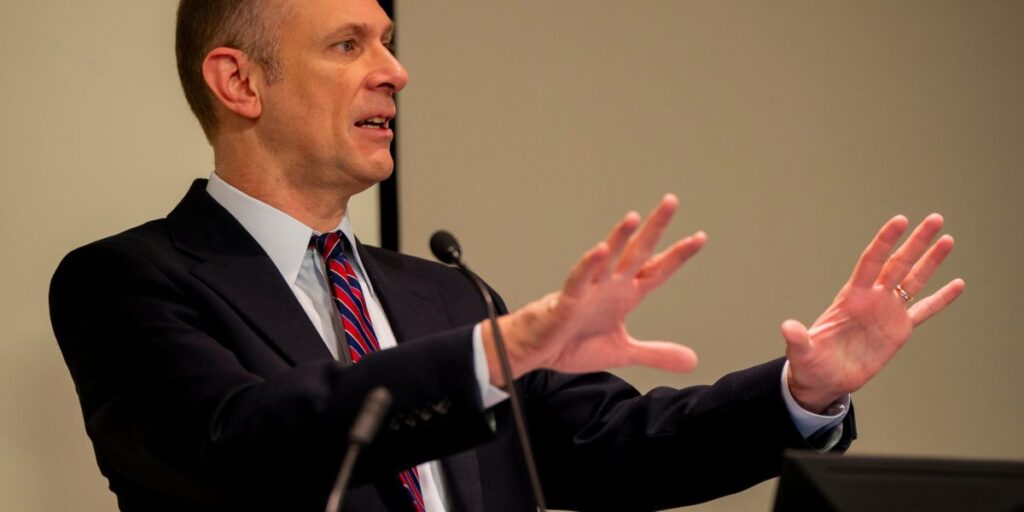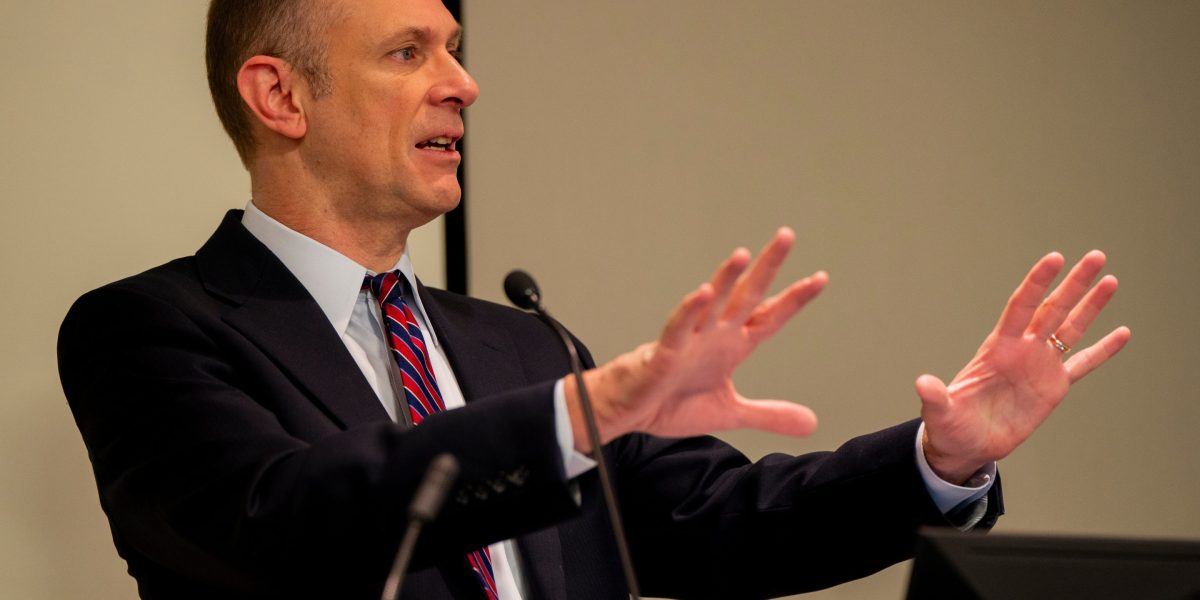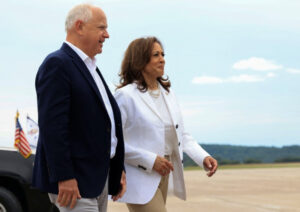Chicago Fed president says if jobs, inflation or ‘financial stability’ worsen, the Fed will ‘fix it’
“It’s the market’s job to react and the Fed’s job to act.” said Chicago Fed president Austan Goolsbee. “And one of those moves with a lot more volatility than the other.”


Chicago Federal Reserve president Austan Goolsbee sought to calm the fears of a panicked market on Monday.
In an interview on CNBC, Goolsbee said the Fed was prepared to address any stumbles in the economy. Goolsbee reiterated the Fed’s commitment to its mandate to keep prices stable, maintain maximum employment, and “maintain financial stability.” The Fed wouldn’t waver from its objectives. “If there is deterioration on any of those parts we’re going to fix it,” Goolsbee said.
The comments come as investors across the world sold off stocks and assets, tanking global stock indices. Goolsbee though was clear that the Fed’s decisions wouldn’t be based solely on market moves.
“It’s the market’s job to react and the Fed’s job to act.” Goolsbee said. “And one of those moves with a lot more volatility than the other.”
His comments on volatility were seemingly in reference to the market, which can have sharp, unexpected movements, like those seen on Monday, when investors become skittish about what they perceive to be a sagging economy. On Monday morning the Dow Jones fell 952 points, while the S&P 500 and the Nasdaq Composite dropped by more than 3%. Japan’s Nikkei index was hit especially hard, at one point falling as much as 13% on the day. “It seems like there’s a lot going on in the world,” Goolsbee said.
Of great concern to some investors over the past several days is last week’s jobs data, which showed a rise in the unemployment rate to 4.3% in July from 4.1% the prior month. Climbing unemployment rates can be a harbinger of a recession, so economists have been trying to analyze whether the July unemployment data was a one-time spike or the start of a trend. Goolsbee did not believe they presaged a recession. “Jobs numbers came in weaker than expected, but not looking yet like recession,” he said.
However, because of those numbers, the Fed is eyeing unemployment more closely, according to Goolsbee. For a long time, the Fed had the luxury of focusing much of its attention on addressing inflation because the job market had remained historically strong. But now with the softening labor market, and unemployment rising every month since March, the Fed is having to more actively balance the two parts of its mandate. “Now you see some weakness in the job market, we have to pay attention to that,” Goolsbee said.
Goolsbee framed the unexpected unemployment data and sell-off on Monday as just some of the many economic indicators the Fed would have to use in its decision-making over the coming months. “That’s the Chicago motto: There’s no bad weather, only bad clothing,” he said. “The conditions come in and we’re going to respond as appropriate.”
Economists and investors largely expect the Fed to cut rates at its next meeting in September. At the central bank’s most recent meeting last week, Federal Reserve chair Jerome Powell hinted that cuts “were on the table” in September. Goolsbee remained circumspect, citing the need to respond in the moment. “It’s a huge table, everything is always on the table,” he said.





